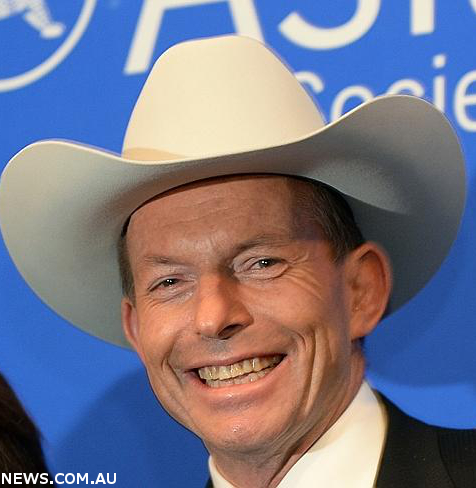Abbott's hat trick in pro-coal climate
 The Prime Minister continues to skirt the importance of investment in renewable energy, saying that Australia should focus on “affordable” energy, and that fighting climate change can be done without harming fossil fuel industries.
The Prime Minister continues to skirt the importance of investment in renewable energy, saying that Australia should focus on “affordable” energy, and that fighting climate change can be done without harming fossil fuel industries.
Prime Minister Tony Abbott sought to balance seemingly contradictory aims on the weekend, telling business leaders in Texas that he wanted to “reduce carbon emissions” without “ostracising any particular fuel” or “harming economic growth”.
Mr Abbott said he saw decades of reliance on coal ahead, a prediction welcomed by the audience made almost entirely of executives from the fossil fuel industries.
The comments came at a speech in Houston - which is home to more than 100 Australian companies and 3700 energy firms.
“For many decades at least, coal will continue to fuel human progress as an affordable energy source for wealthy and developing countries alike,” Abbott told business leaders at the Asia Society Texas Centre in Houston, in the closing days of his recent overseas tour.
“Australians have followed closely the success of America's shale energy revolution that has led to the United States once again becoming one of the world's largest producers of oil and gas,” he said.
“From the other side of the ocean, Australia shares with you a common interest in powering that future with abundant and reliable energy.
“Australia should be an affordable energy superpower, using nature's gifts to the benefit of our own people and the wider world.”
Mr Abbott was given a large Stetson cowboy hat after delivering his speech, and was heard to remark “Yee-ha”.
The Prime Minister was welcomed by figures such as Chevron North America president Jeff Shellebarger.
Representing Australia's largest foreign investor, Mr Shellebarger told the gathered executives that Australia is “setting the standard for resources policy”.
Chevron's Gorgon LNG project is Australia's single largest oil and gas investment.
The chief executive of ConocoPhillips, a firm behind four of Australia's seven new LNG projects, said Australian resources were “important to the future of the world” and would “power the region”.







 Print
Print